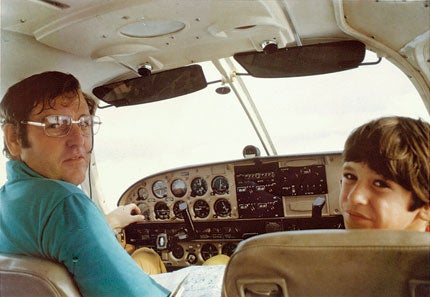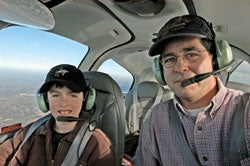 For me, it all began a few thousand feet over some Michigan farmland about 40 years ago. We were somewhere between Detroit and Alpena when my father gave me a heading, told me to keep it straight and level, and then let me grab the yoke. I’ll never forget the joy I felt when that 172 began responding to my whims. It was love at first flight.
For me, it all began a few thousand feet over some Michigan farmland about 40 years ago. We were somewhere between Detroit and Alpena when my father gave me a heading, told me to keep it straight and level, and then let me grab the yoke. I’ll never forget the joy I felt when that 172 began responding to my whims. It was love at first flight.
From that moment on, my father had himself a fully engaged first officer and a carbon-based, self-replicating autopilot system—who needs a servo when you have a kiddo?
My dad taught me the basics of pilotage (you GPS-weaned youngsters wouldn’t understand), and soon I was doing all the dead reckoning—identifying waypoints and timing the distance between them. Suddenly, those story problems from math class actually seemed relevant!
Navigating wasn’t so easy given my nine-year-old stature. In fact, my first hours flying an airplane were all on instruments—not because the weather was bad or I was some kind of aviation savant, I simply couldn’t see the over the glare shield. Many years later, when I began flight training for my instrument rating, my instructor marveled at my seemingly instant knack for flying under the hood. I did nothing to discourage him from believing I was a natural.
I do believe I was born with some sort of recessive aviation gene. Both of my grandfathers were pilots. My mother’s dad, Russell “Duke” Riley, was a wool importer who lived in Boston. In 1933, he bought a Stinson SR Reliant (N13477) that he flew to textile mills in New England and upstate New York. He loved to tell the story of how he beat his rail-bound competitors to a mill in Cohoes, N.Y., and landed an order for a million bags of wool (a record at that time) to make army uniforms.
He claimed he was a pilot, although I doubt he ever really had a license (in any case, he always flew with someone who did have one). According to family lore, my grandfather sold his plane after a trip to New York City in some low weather with my grandmother aboard. Apparently, they got lost looking for Floyd Bennett Field and broke out of the clouds close enough to the Empire State Building that she could see the whites of the office workers’ eyes. After my grandfather and the Stinson parted company, it ended up in Alaska sporting a pair of floats. Eventually, it made its way to the Seattle Museum of Flight where it now hangs from the rafters. My grandfather would be pleased to know his bird is safe and sound for posterity.
Duke’s brother, Arthur, also had an affinity for things that flew. For many years he was the aviation editor of The Boston Globe. According to family lore, he coined the term “skycap”—an aviation portmanteau based on the term for railroad porters, “redcap.” I’m unable to verify this either, although I’m certain he helped foist the term into the popular lexicon even if he didn’t hatch it.
Arthur had the good fortune to cover the Golden Age of Aviation, the amazing years between the World Wars. Right beat…right time!I didn’t even get the T-shirt.
So, I guess it was preordained that I would learn to fly. I took my first lessons in St. Petersburg, Fla., (at Albert Whitted Field) and soloed there in 1986. I finished my training in Boston (Hanscom Field) and took my checkride with the elder Mike Goulian of Executive Flyers fame in February 1988. It was a brutally cold day and the pitot-static system was iced over. Mike told me to press on, and I learned a little something about how to handle an airplane without an important system.
 |
| Miles O’Brien, a licensed pilot, is CNN’s chief technology and environment correspondent. |
I will never forget Mike’s advice to me as he signed me into the ranks of aviators. “Always keep your skills ’wet’,” he said. Easier said than done when you’re trying to make ends meet and starting a family. Indeed, over the years, the only thing that stood in the way of my freedom to fly was money, or more accurately, the lack of it.
Matter of fact, the gaps in my logbook neatly match the gaps in my checkbook. But I always came back to it the moment I could because it’s thrilling in ways that nonpilots don’t comprehend. As all pilots know, flying is the second greatest thrill in life—the first, of course, is landing.
Seriously, for me, it’s something that’s completely engrossing, something that forces me to live entirely in the moment—the only timeframe that really matters equates to the amount of low-lead left in my wings. There’s no time to review the office “to-do” list when the ground is rising to meet you.
Antoine de Saint-Exupéry said, “I fly because it releases my mind from the tyranny of petty things.”
There’s nothing like greasing that landing in a stiff crosswind!or nailing an ILS—breaking out of a cloud deck after a long slog through the scud, right at decision height, and seeing those approach lights winking their greeting!as if to say, “Nice work, flyboy. Welcome back to earth.”
I guess the spirit of that nine-year-old is still alive and well inside me. Maybe that’s true for all pilots. How else could you explain the time, effort and expense we commit to our engrossing avocation?
Richard Bach, who penned the story of a passionate, maverick seagull, of all things, wrote this: “Never stop being a kid. Never stop feeling and seeing and being excited with great things like air and engines and sounds of sunlight within you. Wear your little mask if you must to protect you from the world but if you let that kid disappear you are grown up and you are dead.”
These days, I log a lot of time in my SR22 with my family strapped in beside me cheek to jowl. I’m sure the circus act scene doesn’t jive with the image their friends conjure when my kids tell them they’re headed to the Bahamas in a private plane—but, hey, we don’t need no stinkin’ G-V!
It warms my heart that my progeny are also imbued with a love of aviation. Nature or nurture? No way to know for sure, but probably both.
My only hope is they will always have the opportunity to turn that passion into reality if they so choose. We may not think about it too often, but we’re all winners of a cosmic Lotto to be alive in this sliver of time in this extraordinary place, which allows us to individually realize a dream as old as humanity itself.
Flying may be hardwired into our DNA, but there’s no guarantee our children and our children’s children will also enjoy freedom to actualize the dream. It’s our responsibility to keep the privilege “wet.”

